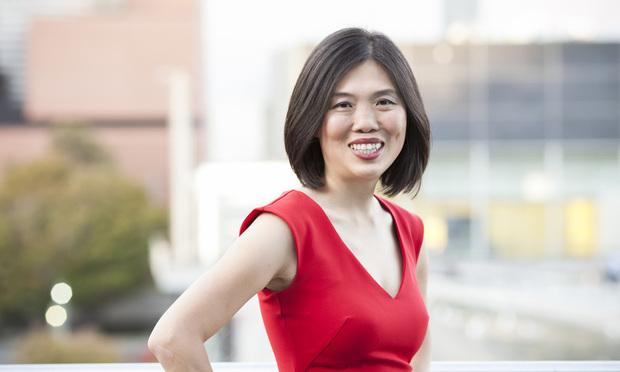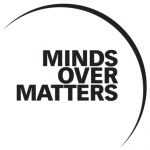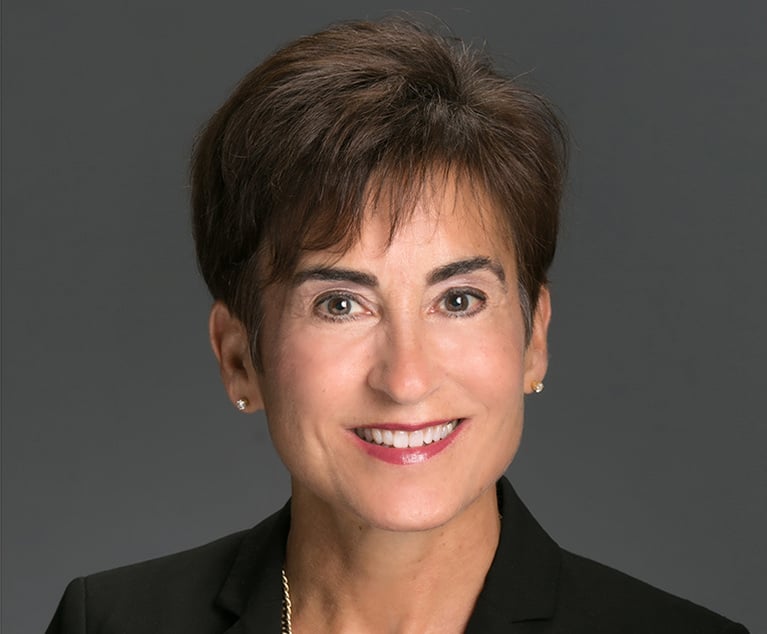For Jeena Cho, Managing Anxiety Meant Making 'Room for Feelings' in Law
“I had this sort of epiphany that there wasn't something wrong with me,” Cho said.
May 12, 2019 at 07:00 PM
6 minute read
 Jeena Cho, lawyer, wellness consultant and co-author of “The Anxious Lawyer.”
Jeena Cho, lawyer, wellness consultant and co-author of “The Anxious Lawyer.”
Jeena Cho always struggled with anxiety and depression. As she progressed through her career as a lawyer, that became intertwined with her work.
“I didn't really have the tools to be able to manage the amount of human suffering we come across as lawyers,” Cho said.
 She has spent almost a decade discovering learning to use those tools. And for the last few years, she's been helping other lawyers do the same.
She has spent almost a decade discovering learning to use those tools. And for the last few years, she's been helping other lawyers do the same.
Cho started her career in 2003 as an assistant state attorney in Tampa. The work took a toll—because of the victims, and also the harsh sentences doled out to some defendants who seemed trapped by the system.
“No one gets involved in the criminal justice system on a good day,” she said.
She recalled seeing undocumented immigrants being sentenced to significant jail time for driving without a license, which they cannot obtain in Florida.
“I was just so traumatized by that,” said Cho, who immigrated to the United States as a child.
The stress accumulated over time.
“I went through a period of burnout, I was depressed all the time, I was having nightmares,” Cho said. “I just wasn't processing the job well.”
But addressing her feelings while working at the State Attorney's Office would have been “unthinkable,” Cho said. It was a competitive environment.
“That's very common in the legal profession in general,” she said. “We're lawyers, we're prosecutors. We're supposed to be hard core.”
So Cho moved out to California, where she started a bankruptcy practice with her now-husband, Jeff Curl, in San Francisco.
She enjoyed bankruptcy law. But the switch didn't fix it all.
“I just got used to it. I think I just assumed that this is how it is to practice law. That this is the norm and I just have to grit my teeth and practice,” Cho said.
Being a bankruptcy lawyer still involves taking in clients “on their worst days,” she said. There's oftentimes some traumatic event that leads a person to file for bankruptcy.
“Over time, I felt more and more anxious … about meeting with clients, even about seeing friends,” she said. “It was almost like I was a third person observing myself going through these motions.”
But she didn't think much of it, she said, figuring working harder might help.
Then her physical health started to show the effects—headaches, stomachaches, hair loss. Managing the symptoms while trying to get through each day became an increasing challenge.
“Inside, there was this feeling of not being altogether there, just waiting for the shoe to drop,” she said.
Driving to a hearing one day, she scared herself.
“I thought, 'it would actually be nice if I got in a car accident because then I could call the court and say I can't come,'” Cho said. “As soon as I had that thought, I was startled. I realized that's not a thought I should have.”
Still, Cho hadn't thought depression was a problem—she was still getting out of bed each morning, eating, functioning normally to any outside observer.
It took lunch with a friend to change her perspective.
That friend, a psychotherapist, suggested Cho might have an anxiety disorder, and recommended an anxiety management clinic at Stanford University. She learned she was diagnosed with social anxiety disorder.
“When I was first diagnosed I had this deep feeling of shame and embarrassment,” Cho said. “What does this mean for my ability to be a lawyer … are people going to try to use this information against me?”
But she sought treatment through Stanford's clinic anyway. It was a 13-week program in a group setting, including cognitive behavioral therapy. She said she realized in that program that she had been lacking the tools to handle a stressful profession.
“I had this sort of epiphany that there wasn't something wrong with me,” she said.
She learned that working with people in traumatic situations—whether they are accused of a crime, or have fallen into major debt after a death in the family—has real effects on one's own mental health. Now, she said, she gives herself the space and time to process those experiences and talk them out when needed.
“I learned a lot about vicarious trauma,” Cho said. “Helping people who are in distress has a direct impact on your well-being.”
She's married to her law partner, and they've gone through the learning process together, she said. So they each understand when the other needs time to recuperate.
Since then Cho co-authored a book, “The Anxious Lawyer,” and began speaking about her experience before bar associations and even several large law firm audiences, teaching mindfulness and meditation.
“Now, I spend a lot of time checking in with myself—How am I feeling today? How am I feeling in this moment? Before, I would think that's too self-indulgent.”
She said her former attitudes toward self-care are likely held by many in the profession. As a prosecutor, she said, she would never have approached her employer about her mental health, for fear of being laughed at.
“I had one boss who said, 'There's no room for your feelings in this room,'” Cho said. “It's painful.”
But the profession may be rounding a corner, she noted, as law firms begin to take an interest in mental health, and some even have therapists on site.
“As a profession, we really need to help each other care for our own well-being,” she said.
This story is part of a special report on mental health and the legal profession from Law.com: Minds over Matters.
This content has been archived. It is available through our partners, LexisNexis® and Bloomberg Law.
To view this content, please continue to their sites.
Not a Lexis Subscriber?
Subscribe Now
Not a Bloomberg Law Subscriber?
Subscribe Now
NOT FOR REPRINT
© 2025 ALM Global, LLC, All Rights Reserved. Request academic re-use from www.copyright.com. All other uses, submit a request to [email protected]. For more information visit Asset & Logo Licensing.
You Might Like
View All
Landlord Must Pay Prevailing Tenants' $21K Attorney Fees in Commercial Lease Dispute, Appellate Court Rules
4 minute read
State Appellate Court Settles Fee Battle Between Former Co-Counsel in Patent Litigation
5 minute read
Return to Work Mandates Among Current Mental Health Stressors for Legal Professionals
1 minute read
Internal GC Hires Rebounded in '24, but Companies Still Drawn to Outside Candidates
4 minute readTrending Stories
Who Got The Work
J. Brugh Lower of Gibbons has entered an appearance for industrial equipment supplier Devco Corporation in a pending trademark infringement lawsuit. The suit, accusing the defendant of selling knock-off Graco products, was filed Dec. 18 in New Jersey District Court by Rivkin Radler on behalf of Graco Inc. and Graco Minnesota. The case, assigned to U.S. District Judge Zahid N. Quraishi, is 3:24-cv-11294, Graco Inc. et al v. Devco Corporation.
Who Got The Work
Rebecca Maller-Stein and Kent A. Yalowitz of Arnold & Porter Kaye Scholer have entered their appearances for Hanaco Venture Capital and its executives, Lior Prosor and David Frankel, in a pending securities lawsuit. The action, filed on Dec. 24 in New York Southern District Court by Zell, Aron & Co. on behalf of Goldeneye Advisors, accuses the defendants of negligently and fraudulently managing the plaintiff's $1 million investment. The case, assigned to U.S. District Judge Vernon S. Broderick, is 1:24-cv-09918, Goldeneye Advisors, LLC v. Hanaco Venture Capital, Ltd. et al.
Who Got The Work
Attorneys from A&O Shearman has stepped in as defense counsel for Toronto-Dominion Bank and other defendants in a pending securities class action. The suit, filed Dec. 11 in New York Southern District Court by Bleichmar Fonti & Auld, accuses the defendants of concealing the bank's 'pervasive' deficiencies in regards to its compliance with the Bank Secrecy Act and the quality of its anti-money laundering controls. The case, assigned to U.S. District Judge Arun Subramanian, is 1:24-cv-09445, Gonzalez v. The Toronto-Dominion Bank et al.
Who Got The Work
Crown Castle International, a Pennsylvania company providing shared communications infrastructure, has turned to Luke D. Wolf of Gordon Rees Scully Mansukhani to fend off a pending breach-of-contract lawsuit. The court action, filed Nov. 25 in Michigan Eastern District Court by Hooper Hathaway PC on behalf of The Town Residences LLC, accuses Crown Castle of failing to transfer approximately $30,000 in utility payments from T-Mobile in breach of a roof-top lease and assignment agreement. The case, assigned to U.S. District Judge Susan K. Declercq, is 2:24-cv-13131, The Town Residences LLC v. T-Mobile US, Inc. et al.
Who Got The Work
Wilfred P. Coronato and Daniel M. Schwartz of McCarter & English have stepped in as defense counsel to Electrolux Home Products Inc. in a pending product liability lawsuit. The court action, filed Nov. 26 in New York Eastern District Court by Poulos Lopiccolo PC and Nagel Rice LLP on behalf of David Stern, alleges that the defendant's refrigerators’ drawers and shelving repeatedly break and fall apart within months after purchase. The case, assigned to U.S. District Judge Joan M. Azrack, is 2:24-cv-08204, Stern v. Electrolux Home Products, Inc.
Featured Firms
Law Offices of Gary Martin Hays & Associates, P.C.
(470) 294-1674
Law Offices of Mark E. Salomone
(857) 444-6468
Smith & Hassler
(713) 739-1250








